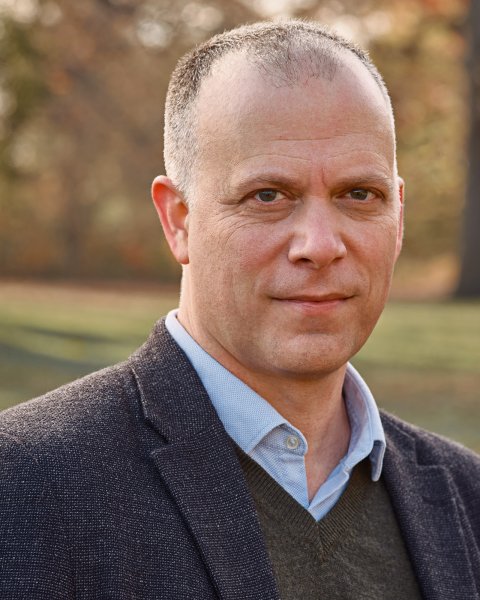In his new book, Let the People Pick the President, writer, reporter and producer Jesse Wegman and member of the New York Times editorial board discusses the history of the Electoral College, the many efforts to revamp it and why it would be better to choose the president based on the popular vote.
In this Q&A, Wegman shares his favorite founding father, his predictions for the future of the Electoral College and why he never gets to sleep late.
Why this book?
The way we pick our president is one of the most hotly contested topics in American politics. Now that the popular-vote loser has won the presidency twice in the past two decades, it's at the front of the public's mind. And yet, I found virtually no general-interest books advocating for the national popular vote. So I took Toni Morrison's advice and wrote the book I wanted to read.
Which founding father do you admire most and what was his position on the Electoral College?
James Wilson. Haven't heard of him? Neither had I, until I started writing this book. And yet, at the constitutional convention in Philadelphia, he was the most respected lawyer in the land, and more influential than any framer with the possible exception of James Madison. Wilson had a thoroughly modern vision of what America should be; he fought for a country more inclusive, egalitarian and democratic than any other founder was prepared to imagine. He believed in an expansive right to vote. He thought Congress should represent people, not states. He was strongly anti-slavery and pro-immigration. And, from the first week of the convention, Wilson was the strongest advocate for allowing the people to elect the president directly. Wilson came to America as a poor immigrant from Scotland, and his personal story and rise to fame is fascinating. He was one of just six founders who signed both the Declaration of Independence and the Constitution, and he served as a justice on the first Supreme Court. So why don't we know more about him? There's a tragic answer to that question. Buy the book and find out!
Do you think the Electoral College eventually will be overturned? How long will that take?
Yes, I do. It is the next and perhaps last great step in the 230-year arc of American democratization—following emancipation, the direct election of senators, women's suffrage, the enfranchisement of 18-year-olds and more. When will it happen? I can't tell you for sure, unless a Republican wins the popular vote and loses the Electoral College, in which case it will happen the next day.
Do you foresee another split in the 2020 election with the winner of the popular vote not winning the presidency?
The odds of it happening again are higher than usual, without question. For the sake of the country's sanity, I pray it doesn't happen. On the other hand, nothing else would force us to confront so directly the absurdity of the way we choose the nation's leader.
Does this have broader implications for the country? Or is it just an every-four-years issue?
No matter who wins the White House, the Electoral College as it functions today damages our republic, and we feel the effects at all times, even if we don't realize it. Thanks to the winner-take-all rule used to award electors in 48 states, presidential campaigns focus almost entirely on a small handful of "battlegrounds" to the exclusion of the rest of the country. Ignoring more than 40 states (and thus their citizens) warps national policymaking and hobbles political organizing at the state and local level.

Should "Faithless Electors" be allowed?
They already are. Right now, 18 states have no laws requiring their electors to pledge their vote to a specific candidate; even among those that require a pledge, 17 impose no legal consequences for breaking it. The Supreme Court is deciding this term whether states have the power to punish or replace faithless electors. The real question is whether faithless electors will ever influence the outcome of an election. I'm among those who are convinced that they won't, even in a close race. Remember 2000: George W. Bush led Al Gore by just four electoral votes, and yet even though he had lost the popular vote, not a single Republican elector defected.
Do you have any habits around voting? Do you prefer the old-fashioned lever booths or the newer, digital ones?
I loved those lever machines when I was growing up and accompanying my parents into the voting booth. But in an ever-more-technologically-complex world, there's nothing like a pen and a piece of paper.
Do you have any favorite podcasts?
Listening to podcasts is the worst thing I don't do. That said, I've enjoyed a few recently: Lexicon Valley; The Shrink Next Door (a mind-bending tale of a con man who also happened to be a close friend of my family); Slow Burn; S-Town; and The Longest Shortest Time—not a topic [motherhood] I'd naturally zero in on, but my wife steered me to this because it's hosted by her childhood friend, and it's great.
What's next for you?
You mean after vindicating American democracy and saving the republic? I'd love to sleep in for just one morning, until 7:30—if my girls will let me.
READ MORE: This Is What's Wrong With How We Elect a President—And How to Fix It
Correction March 17, 2020 5:45 p.m.: This story was updated to clarify that Jesse Wegman is a member of the New York Times editorial board.














